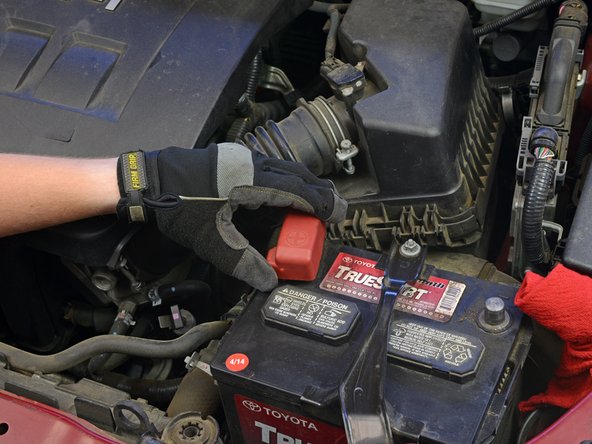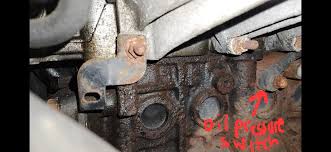Does It Matter What Battery I Put In My Car?

Your car’s battery is one of the most critical components for ensuring smooth operation. It powers everything from starting the engine to running essential electronics. But does it really matter which battery you put in your car? This guide will explore why selecting the right battery is crucial and how it impacts your vehicle’s performance and longevity.
Why Choosing the Right Battery Matters
The battery you choose for your car directly affects its reliability, efficiency, and overall performance. A wrong battery can lead to issues such as:
- Difficulty starting the engine.
- Reduced lifespan of the battery.
- Malfunctioning of electrical components.
Understanding your car’s specific requirements is key to making the right choice.
Types of Car Batteries
Car batteries come in different types, and selecting the right one depends on your vehicle’s make, model, and usage.
1. Lead-Acid Batteries
These are the most common and cost-effective option for standard vehicles.
Pros:
- Affordable.
- Readily available.
Cons:
- Shorter lifespan compared to other types.
2. AGM (Absorbent Glass Mat) Batteries
AGM batteries are designed for modern cars with advanced electronics.
Pros:
- Long-lasting.
- Resistant to vibrations and leaks.
Cons:
- More expensive than lead-acid batteries.
3. Lithium-Ion Batteries
Primarily used in electric and hybrid vehicles, these batteries are lightweight and highly efficient.
Pros:
- Lightweight and compact.
- Long lifespan.
Cons:
- High upfront cost.
Factors to Consider When Choosing a Battery
To ensure optimal performance, consider the following factors when selecting a car battery:
1. Compatibility with Your Vehicle
Always check your car’s manual for the recommended battery specifications, including size, voltage, and capacity.
2. Climate Conditions
If you live in a region with extreme temperatures, opt for a battery designed to handle those conditions.
- Hot climates: Choose a battery with higher heat resistance.
- Cold climates: Look for a battery with a high cold-cranking amp (CCA) rating.
3. Battery Life Expectancy
Invest in a battery with a warranty and a proven lifespan to avoid frequent replacements.
4. Power Needs
If your vehicle has additional electronics like a powerful sound system or heated seats, choose a battery with higher reserve capacity.
5. Brand Reputation
Stick to reputable brands like Optima, DieHard, or Interstate for quality and reliability.
Signs You Need a New Battery
Even the best car batteries wear out over time. Look out for these signs indicating you may need a replacement:
1. Slow Engine Crank
A sluggish start is often the first sign of a failing battery.
2. Electrical Issues
Dimming headlights or malfunctioning electronics could point to a weak battery.
3. Dashboard Warning Light
Many vehicles have a battery warning light that activates when there’s an issue.
4. Corrosion on Terminals
Corroded terminals can prevent proper connections and affect battery performance.
5. Old Age
Most car batteries last between 3–5 years. If your battery is older, consider replacing it.
How to Choose the Right Battery for Your Car
To ensure you’re choosing the correct battery, follow these steps:
1. Check Your Owner’s Manual
Your car’s manual provides specific recommendations for battery size and specifications.
2. Consult with a Professional
If you’re unsure, seek advice from an auto repair shop or retailer.
3. Use Online Tools
Many websites, like AutoZone or Advance Auto Parts, have tools that match your vehicle with compatible batteries.
4. Compare Options
Compare batteries based on warranty, price, and customer reviews to find the best fit.
Do Premium Batteries Make a Difference?
Premium batteries often come with advanced features and longer lifespans. But are they worth the extra cost?
Benefits of Premium Batteries:
- Enhanced durability.
- Better performance in extreme conditions.
- Longer warranties.
When to Opt for a Premium Battery:
- If you drive in harsh climates.
- If your vehicle has high power demands.
- If you want a longer-lasting solution.
Myths About Car Batteries
1. All Batteries Are the Same
Not true. Each battery is designed for specific applications and vehicles.
2. A Higher CCA Is Always Better
While a high CCA is crucial for cold climates, it’s not always necessary for all vehicles.
3. You Can Use Any Brand
Using a brand not suited for your vehicle can lead to compatibility issues.
FAQs About Car Batteries
1. How Long Do Car Batteries Last?
On average, car batteries last 3–5 years. Regular maintenance can extend their lifespan.
2. Can I Install a Car Battery Myself?
Yes, if you’re familiar with car maintenance. However, professional installation ensures proper fit and safety.
3. What Happens if I Use the Wrong Battery?
Using the wrong battery can lead to poor performance, electrical issues, and potential damage to your vehicle.
4. How Do I Maintain My Car Battery?
- Keep terminals clean and free of corrosion.
- Check voltage regularly.
- Avoid leaving lights or electronics on when the engine is off.
5. Can I Use a Bigger Battery in My Car?
Only if it fits and meets your car’s specifications. Otherwise, it could cause problems.
Conclusion
Choosing the right battery for your car is essential for its performance, reliability, and longevity. By considering factors like compatibility, climate, and power needs, you can make an informed decision that keeps your vehicle running smoothly.
Whether you opt for a standard lead-acid battery or a high-performance AGM battery, always prioritize quality and ensure it meets your car’s specifications. Taking the time to select the right battery can save you from unexpected breakdowns and costly repairs in the future.
Also Check:
• Does Battery Group Size Matter?




